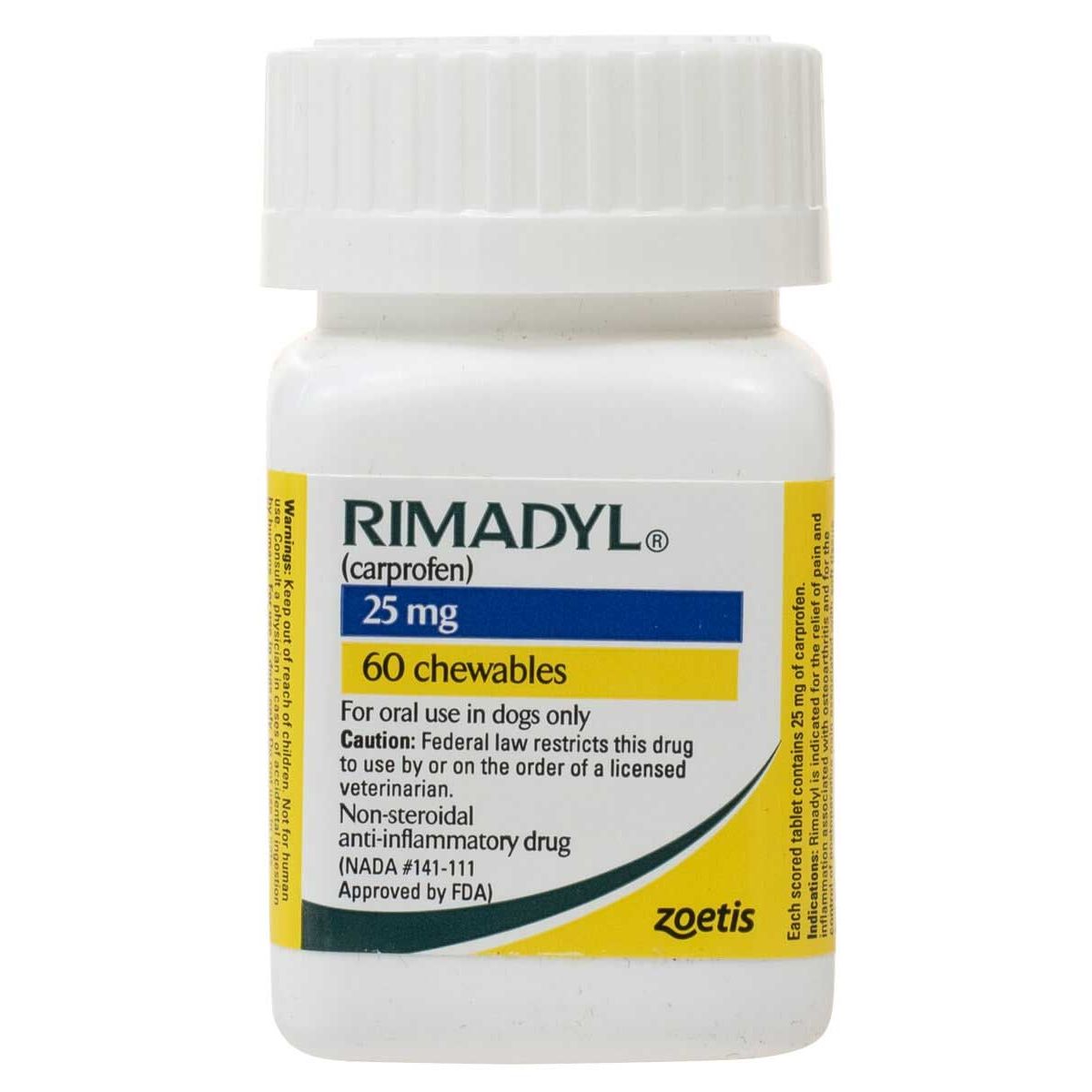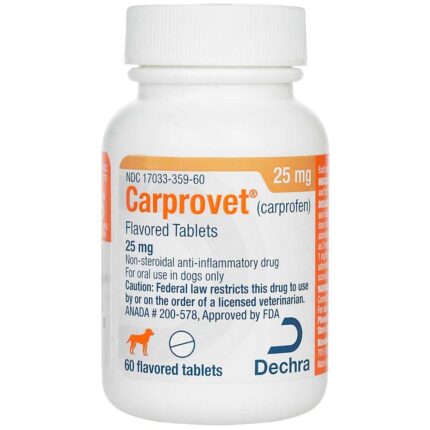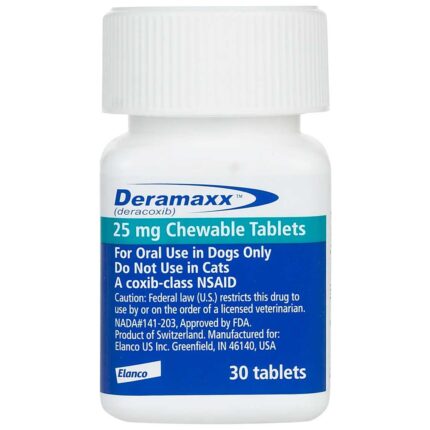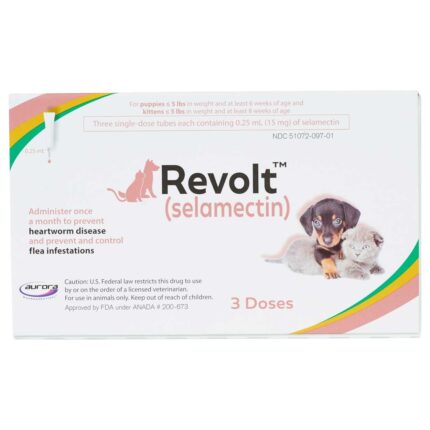Rimadyl Chewable Tablets contain carprofen, a non-steroidal anti-inflammatory drug (NSAID). The recommended dosage of Rimadyl Chewable Tablets is 2 mg/lb daily, given in 1 dose or divided between 2 doses daily. Carprofen.
Rimadyl is used to relieve arthritis pain and inflammation caused by arthritis, joint problems and surgery.
Benefits:
Relief from pain to improve quality of life
Control of pain and inflammation from surgery
How it works:
Rimadyl is a non-steroidal anti-inflammatory drug (NSAID). It works by inhibiting the hormones which generate chemicals that are responsible for pain and inflammation.
What you should know:
Rimadyl is not a cure, but can effectively manage the symptoms of pain and inflammation.
How to give this medication:
Rimadyl chewable tablets are to be given orally. The recommended dosage is 2 mg per pound daily, given in 1 dose or divided between 2 doses daily. It may be given with or without food. Give this medication exactly as directed by your veterinarian. If you do not understand the directions, ask the veterinarian or pharmacist to explain them to you.
If you miss a dose:
Give the missed dose as soon as you remember. However, if it is almost time for the next scheduled dose, skip the missed dose and give the regular dose as directed. Do not double dose.
Rimadyl should not be used in:
The safe use of Rimadyl in animals less than 6 weeks of age, pregnant dogs, dogs used for breeding purposes, or in lactating bitches has not been established.
Possible side effects:
The use of NSAIDs may cause stomach upset, with the potential to product gastric ulcers. Adverse reactions may include vomiting, diarrhea, decreased appetite, dark or tarry stools, excessive thirst, increased urination, pale gums due to anemia, yellowing of gums, skin or white of the eye due to jaundice, lethargy, incoordination, seizure or behavioral changes. If you observe any of these side effects, contact your veterinarian as soon as possible.











